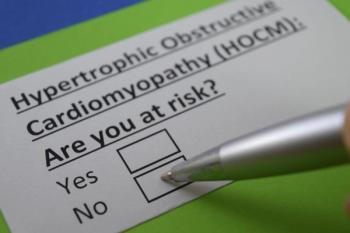
AHA: Mental Health Impacts Heart Disease Prevention
The American Heart Association’s recent scientific statement found that mental health impacts risk factors for heart disease.
Psychological health can positively or negatively impact heart health and risk factors for heart disease and stroke, according to a recent American Heart Association (AHA) scientific statement.1
The statement, “Psychological Health, Well-Being, and the Mind-Heart-Body Connection,” published in AHA’s journal
“A person’s mind, heart and body are all interconnected and interdependent in what can be termed ‘the mind-heart-body-connection,’” said Glenn N. Levine, MD, FAHA, master clinician and professor of medicine at Baylor College of Medicine, chief of the cardiology section at the Michael E. DeBakey VA Medical Center, and chair of the writing committee for the Scientific Statement, in an AHA
“Research has clearly demonstrated that negative psychological factors, personality traits and mental health disorders can negatively impact cardiovascular health. On the other hand, studies have found positive psychological attributes are associated with lower risk of cardiovascular disease and mortality,” Levine added.
Data has connected negative psychological health to heart disease, according to AHA. The scientific statement advocated for regular mental health screening for individuals with or at risk for cardiovascular disease.
Negative psychological health conditions include depression, chronic stress, anxiety, anger, pessimism and dissatisfaction with one’s life. Those psychological conditions produce potentially harmful biological responses, including irregularities of heart rate and rhythm, increased blood pressure, inflammation, and reduced blood flow to the heart, AHA said.
Negative psychological health is also associated with health behaviors that are linked to an increased risk for heart disease and stroke, such as smoking, lower levels of physical activity, unhealthy diet, being overweight and not taking medications as prescribed.
Psychological therapy and mind-body programs can lead to better cardiovascular health, authors of the scientific statement said. “Programs that improve psychological health include cognitive behavioral therapy, psychotherapy, collaborative care management approaches, stress reduction therapy and meditation,” AHA said in the news release.
The statement highlighted research showing that both the cumulative effect of daily stressors and exposure to traumatic events can also increase the risk of heart disease and stroke. Patients’ self-report of general and work-related stresses have been associated with up to 40% increased risk of developing or dying from heart disease.
“Most studies of psychological health are observational, with many involving self-reporting from patients, which presents challenges to establishing specific cause and effect relationships,” Levine said. “However, a preponderance of such studies is highly suggestive and allows one to make reasonable conclusions about an association between negative psychological health and cardiovascular risk.”
On the other hand, studies have found positive psychological health associated with a lower risk of cardiovascular disease and death. Positive psychological health characteristics include happiness, optimism, gratitude, sense of purpose, life satisfaction and mindfulness.
“The data is consistent, suggesting that positive psychological traits play a part in better cardiovascular health,” Levine said.
People with positive psychological health were also more likely to have health factors linked to a lower risk of developing cardiovascular disease, including lower blood pressure, better glucose control, less inflammation, and lower cholesterol.
Positive psychological health is also associated with beneficial health behaviors such as smoking cessation, increased physical activity, healthy eating, increased medication adherence and regular check-ups and health screenings.
The scientific statement was prepared by a volunteer writing group on behalf of the AHA’s Council on Clinical Cardiology; the Council on Arteriosclerosis, Thrombosis and Vascular Biology; the Council on Cardiovascular and Stroke Nursing; and the Council on Lifestyle and Metabolic Health.
References
- Levine, G., Cohen, B., et al. Psychological health, well-being, and the mind-heart-body connection: a scientific statement from the American Heart Association. Circulation; January 25, 2021. doi:
https://doi.org/10.1161/CIR.0000000000000947 - Mental health is important to overall health, and heart disease prevention and treatment. News release. American Heart Association; January 25, 2021. Accessed February 8, 2021.
https://newsroom.heart.org/news/mental-health-is-important-to-overall-health-and-heart-disease-prevention-and-treatment?preview=422a .
Newsletter
Pharmacy practice is always changing. Stay ahead of the curve with the Drug Topics newsletter and get the latest drug information, industry trends, and patient care tips.























